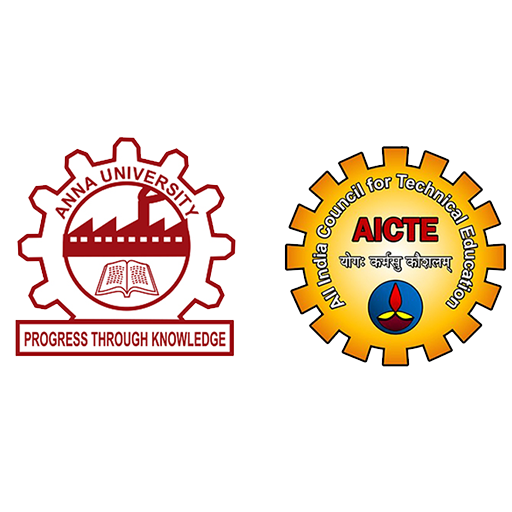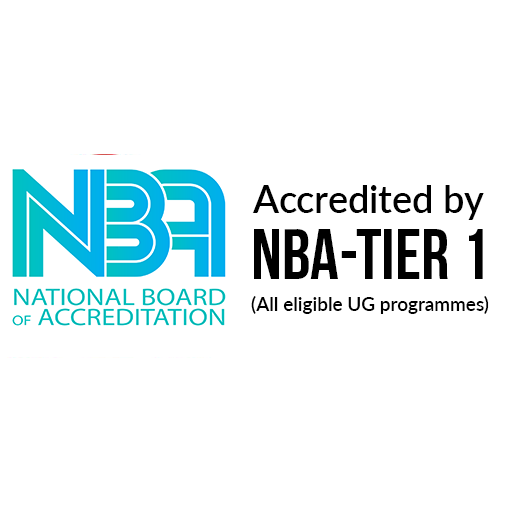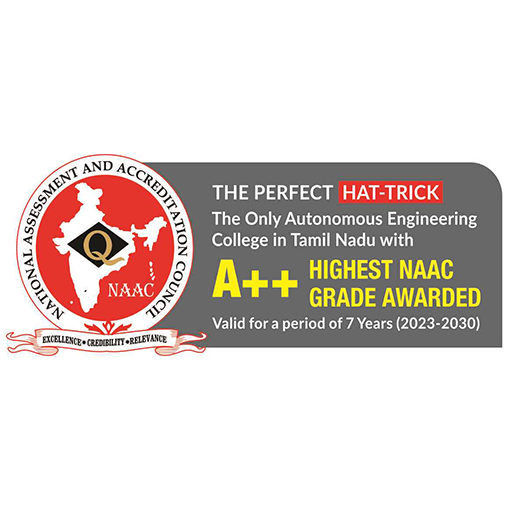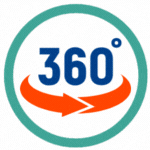Programme Educational Objectives (PEOs) for Regulation (2014)
The graduates will:PEO1.Technical Expertise: Actively apply technical and professional skills in engineering practices towards the progress of the organization in competitive and dynamic environment
PEO2.Lifelong Learning: Own their professional and personal development by continuous learning and apply the learning at work to create new knowledge
PEO3. Ethical Knowledge: Conduct themselves in a responsible, professional and ethical manner supporting sustainable economic development which enhances the quality of life.
Programme Educational Objectives (PEOs) for Regulation 2016
The graduates will:
PEO1.Technical Expertise: Actively apply technical and professional skills in engineering practices towards the progress of the organization or the entrepreneurial venture in competitive and dynamic environment.
PEO2.Lifelong Learning: Own their professional and personal development by continuous learning and apply the learning at work to create new knowledge.
PEO3.Ethical Knowledge: Conduct themselves in a responsible, professional and ethical manner supporting sustainable economic development which enhances the quality of life.
Programme Educational Objectives (PEOs) for Regulation 2019
The graduates will:
PEO1.Technical Expertise: Actively apply technical and professional skills in engineering practices towards the progress of the organization or the entrepreneurial venture in competitive and dynamic environment.
PEO2.Lifelong Learning: Own their professional and personal development by continuous learning and apply the learning at work to create new knowledge.
PEO3.Ethical Knowledge: Conduct themselves in a responsible, professional and ethical manner supporting sustainable economic development which enhances the quality of life.
Programme Educational Objectives (PEOs) for Regulation 2023
The graduates will:
PEO1.Technical Expertise: Actively apply technical and professional skills in engineering practices towards the progress of the organization or the entrepreneurial venture in competitive and dynamic environment.
PEO2.Lifelong Learning: Own their professional and personal development by continuous learning and apply the learning at work to create new knowledge.
PEO3.Ethical Knowledge: Conduct themselves in a responsible, professional and ethical manner supporting sustainable economic development which enhances the quality of life.
Programme Outcomes (POs)
At the end of the mechanical engineering programme, Graduating students / Graduates will be able to:
PO1. Apply scientific principles and concepts in design and development of products and manufacturing processes.
PO2. Analyze the systems’ behavior and optimize for the results using modeling, simulation and experiments.
PO3. Design products and manufacturing facilities that deliver the requirements of the target customers and desired quality functions.
PO4. Identify, formulate, and solve engineering problems using appropriate tools and techniques.
PO5. Check and improve the DFX-assembly, manufacture, cost, quality, reliability, serviceability, recyclability etc.
PO6. Face challenges with rigor and emotional stability
PO7. Demonstrate understanding of the dynamic industrial and business environment in which the products are designed, manufactured and sold.
PO8. Practice Ethical responsibility
PO9. Work effectively in teams and build/manage interpersonal relationships
PO10. Communicate effectively through oral, non-verbal and written means.
PO11. Plan and work to time
PO12. Learn continuously
Programme Outcomes (POs)
PO1. Apply knowledge of basic sciences and engineering concepts to solve complex mechanical engineering problems.
PO2. Identify, formulate, and analyze engineering problems using scientific principles and concepts.
PO3. Design products, manufacturing processes and facilities that deliver the requirements of the target customers and desired quality functions.
PO4. Conduct experiments, analyze and interpret data to provide solutions for engineering problems.
PO5. Use appropriate tools and techniques to solve engineering problems.
PO6. Apply contextual knowledge to make informed decisions in societal, health, safety, legal, entrepreneurial and cultural issues.
PO7. Demonstrate the knowledge of need for sustainable development in providing engineering solutions in global, environmental and societal contexts.
PO8. Practice Ethical responsibility.
PO9. Work effectively in teams and build/manage interpersonal relationships.
PO10. Communicate effectively through oral, non-verbal and written means.
PO11. Apply management principles to manage individual and team work for executing projects in a multidisciplinary environment.
PO12. Articulate and engage in pursuit of career and life goals through continuous Learning.
Programme Outcomes (POs)
PO1. Apply knowledge of basic sciences and engineering concepts to solve complex mechanical engineering problems.
PO2. Identify, formulate, and analyze engineering problems using scientific principles and concepts.
PO3. Design products, manufacturing processes and facilities that deliver the requirements of the target customers and desired quality functions.
PO4. Conduct experiments, analyze and interpret data to provide solutions for engineering problems.
PO5. Use appropriate tools and techniques to solve engineering problems.
PO6. Apply contextual knowledge to make informed decisions in societal, health, safety, legal, entrepreneurial and cultural issues.
PO7. Demonstrate the knowledge of need for sustainable development in providing engineering solutions in global, environmental and societal contexts.
PO8. Practice Ethical responsibility.
PO9. Work effectively in teams and build/manage interpersonal relationships.
PO10. Communicate effectively through oral, non-verbal and written means.
PO11. Apply management principles to manage individual and team work for executing projects in a multidisciplinary environment.
PO12. Articulate and engage in pursuit of career and life goals through continuous Learning.
Programme Outcomes (POs)
PO1. Apply knowledge of basic sciences and engineering concepts to solve complex mechanical engineering problems.
PO2. Identify, formulate, and analyze engineering problems using scientific principles and concepts.
PO3. Design products, manufacturing processes and facilities that deliver the requirements of the target customers and desired quality functions.
PO4. Conduct experiments, analyze and interpret data to provide solutions for engineering problems.
PO5. Use appropriate tools and techniques to solve engineering problems.
PO6. Apply contextual knowledge to make informed decisions in societal, health, safety, legal, entrepreneurial and cultural issues.
PO7. Demonstrate the knowledge of need for sustainable development in providing engineering solutions in global, environmental and societal contexts.
PO8. Practice Ethical responsibility.
PO9. Work effectively in teams and build/manage interpersonal relationships.
PO10. Communicate effectively through oral, non-verbal and written means.
PO11. Apply management principles to manage individual and team work for executing projects in a multidisciplinary environment.
PO12. Articulate and engage in pursuit of career and life goals through continuous Learning.
Program Specific Outcomes PSO:
PSO1. Articulate and engage in pursuit of career and life goals
PSO2. Develop and maintain positive health – physical, mental and social wellbeing
PSO3. Develop adaptability to change
Program Specific Outcomes PSOs
PSO1:Demonstrate functional competencies for roles in design, manufacturing and service by learning through centers of excellence and industrial exposure.
PSO2:Demonstrate behavioral competencies required for roles in design, manufacturing and service by learning through structured professional skills training.
Program Specific Outcomes PSOs
PSO1:Demonstrate functional competencies for roles in design, manufacturing and service by learning through centers of excellence and industrial exposure.
PSO2:Demonstrate behavioral competencies required for roles in design, manufacturing and service by learning through structured professional skills training.
Program Specific Outcomes PSOs
PSO1:Demonstrate functional competencies for roles in design, manufacturing and service by learning through centers of excellence and industrial exposure.
PSO2:Demonstrate behavioral competencies required for roles in design, manufacturing and service by learning through structured professional skills training.






